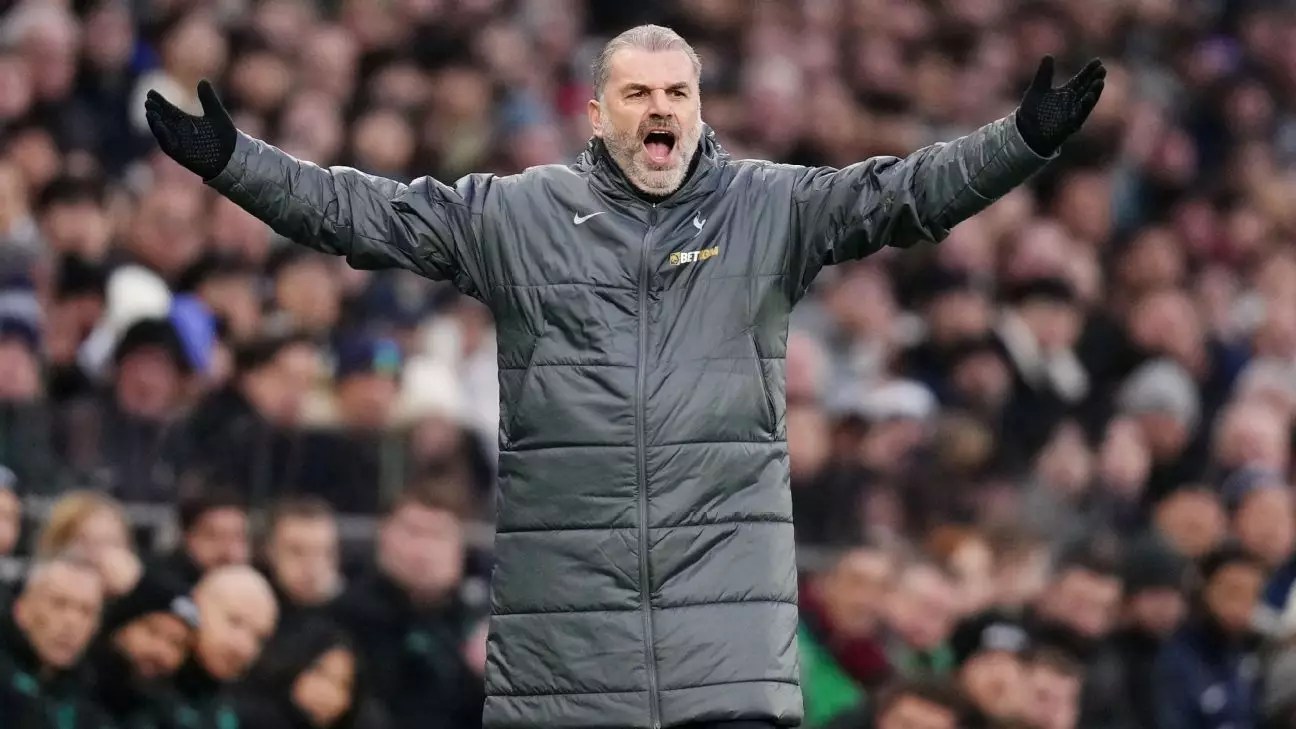Tottenham Hotspur finds itself in a precarious situation as injuries continue to plague the squad. Manager Ange Postecoglou faced immense pressure after the recent 2-2 draw with Wolverhampton Wanderers, a match that showcased not only the team’s struggles on the field but also the dire state of their injury list. With critical players sidelined, including centre-backs Cristian Romero, Micky van de Ven, and Ben Davies, Postecoglou was left with little room for maneuver. This predicament forced him to include Radu Dragusin, a player grappling with an ankle injury, to fill a gaping void in defense.
Postecoglou painted a bleak picture of the situation, noting that Dragusin’s involvement was less about tactical choice and more about necessity. The manager acknowledged the risks of fielding an injured player, yet he felt that Dragusin’s ability to manage through the pain was the team’s best option. This situation not only highlights the depth of the injury crisis but also raises questions about the club’s preparation and squad depth. Relying on players who are not fully fit can lead to reduced effectiveness on the field and the risk of further injuries.
The injury list does not just include defenders. The absence of striker Richarlison, winger Wilson Odobert, and first-choice goalkeeper Guglielmo Vicario further compounds the issue, leaving the team in a fragile position moving forward. Additionally, midfielder Rodrigo Bentancur’s one-match ban due to accumulating five yellow cards means the squad will lack yet another important player in their upcoming fixture against Newcastle United. Bentancur has often been a linchpin in the midfield, and his absence will undoubtedly be felt as the team struggles to find its rhythm.
Moreover, the recent injury to left-back Destiny Udogie, who was substituted after just 50 minutes due to a suspected hamstring issue, exemplifies how the squad’s reliance on a limited number of players is catching up with them. Postecoglou himself pointed out that the core group of players has been leaned on too heavily and that this unsustainable practice has led to inevitable injuries.
Underwhelming Results Amidst the Crisis
From a performance standpoint, Tottenham’s results have been disappointing. With only one win in their last seven league matches, the hormonal strain of the injury crisis can also be seen in the league standings; the team currently sits at an unflattering 11th place. The match against Wolves exemplified this issue, as Spurs fell behind early—marking the 15th time this year the team has conceded the first goal at home in the Premier League.
Despite a temporary turnaround with goals from Bentancur and Brennan Johnson putting the team ahead before halftime, Spurs allowed a late equalizer from Wolves’ Jørgen Strand Larsen, showcasing their inability to maintain leads. Postecoglou’s remarks after the match encapsulated the frustration surrounding the performance: while he felt his team controlled the game, the match’s outcome still felt disappointing. The inconsistency shown by the players speaks volumes about their mental and physical fatigue caused by the ongoing injury crisis.
As Tottenham contemplates the road ahead, it becomes crucial for Postecoglou to reassess not only squad rotation but also the approach towards managing player fitness. The reliance on a small group of fit players has tangible consequences not just for matches but for the long-term health of the players involved. Emphasizing squad depth and integrating younger talents could become essential strategies to mitigate future crises.
Tottenham Hotspur’s current plight is undoubtedly significant; the injuries have impeded their performance and stability within the Premier League. As they prepare to face Newcastle, strategic changes are necessary not only to secure points but also to restore confidence within the squad. Only by addressing these concerns can Spurs aim to inch their way back up the league table and recapture the competitive spirit that has been so crucial to their identity as a club.


Leave a Reply